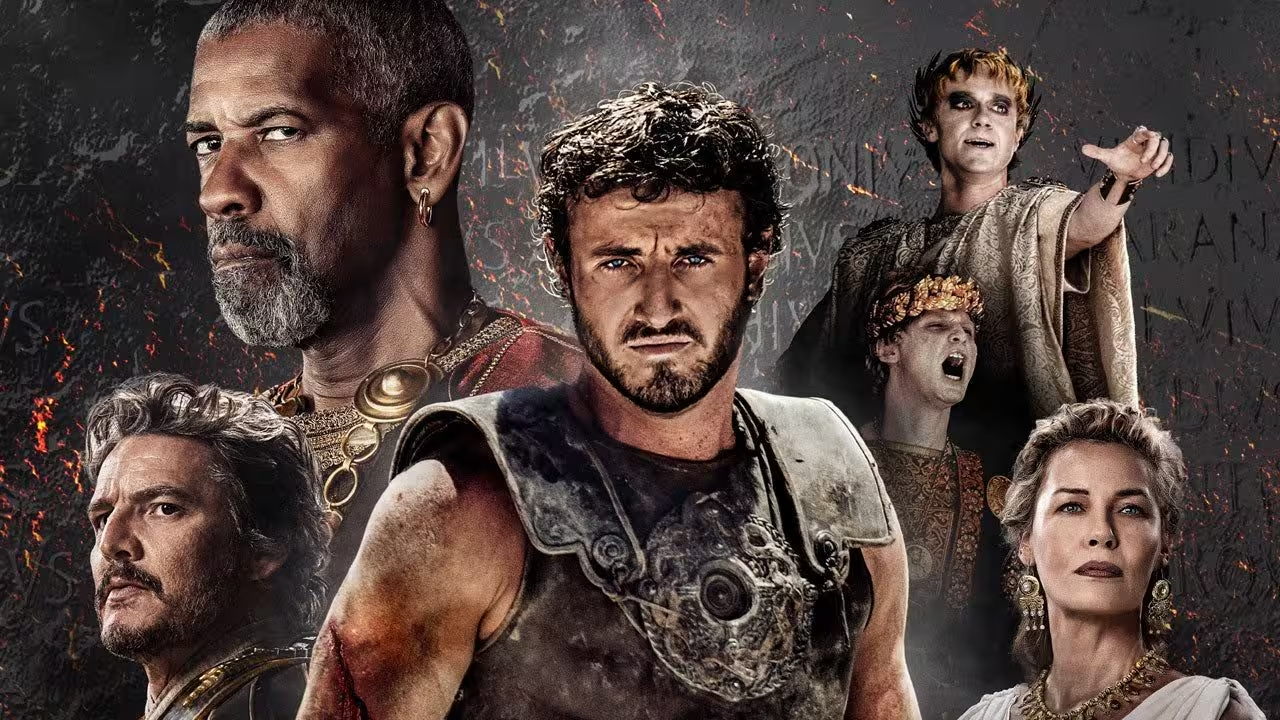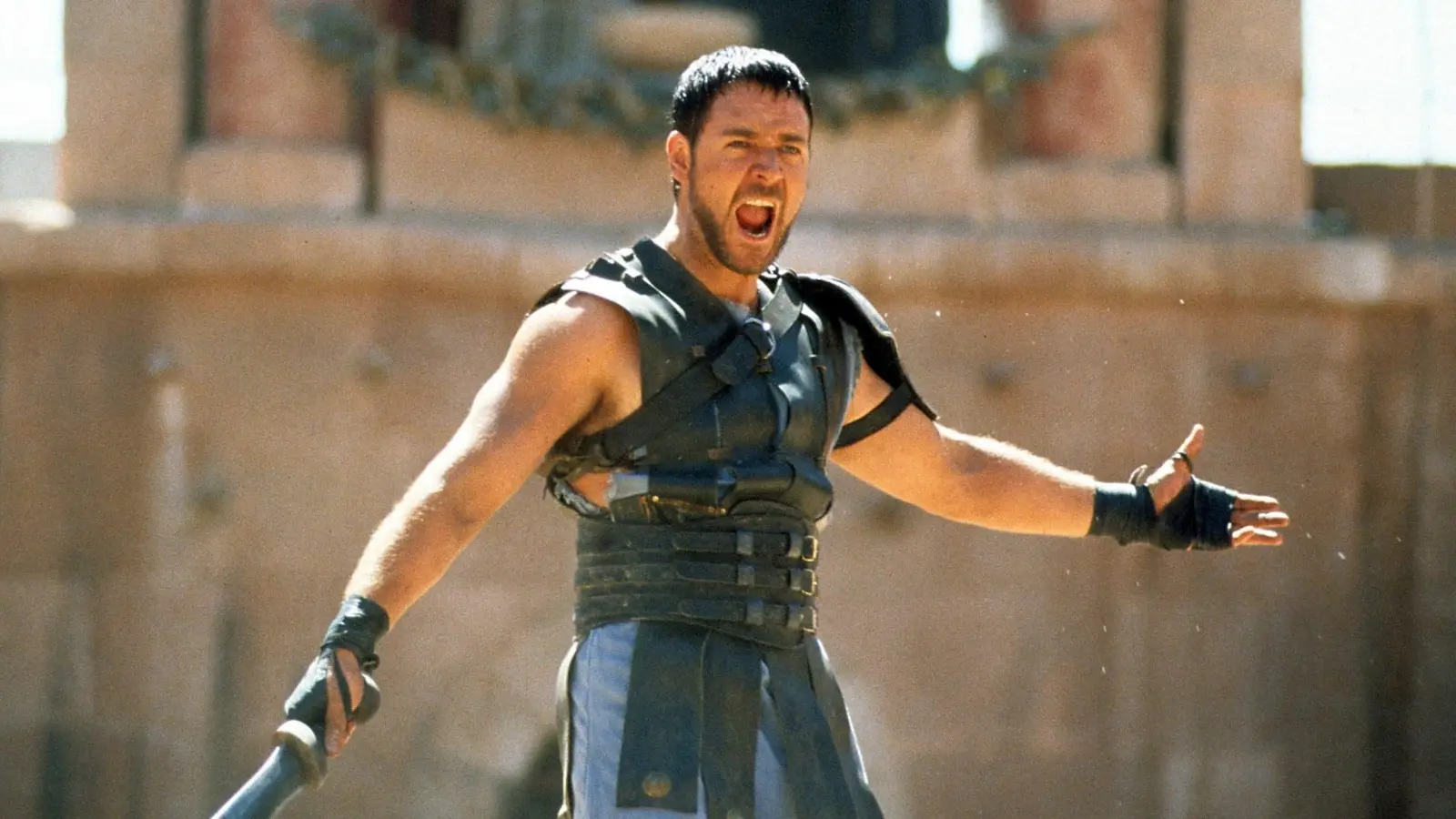5 Minutes
When Ridley Scott's Gladiator stormed cinemas in 2000 it revived the sword-and-sandals epic for a new generation. Two decades later, the long-awaited Gladiator 2 returned to the arena amid skepticism and high expectations; the sequel has earned roughly $221 million worldwide compared with the original's $451 million, but its cultural footprint goes beyond box-office tallies. Both films deliver moments of blazing intensity and unforgettable dialogue that fans quote, meme, and debate. Here are the five most epic lines across both movies, a look at why they resonate, and what they reveal about character, spectacle, and modern epic filmmaking.
1) "Are you not entertained?"
Gladiator (2000) — Maximus (Russell Crowe)
Few lines have lodged themselves into pop culture like Maximus's taunt to the Colosseum crowd. More than bravado, it’s a cutting indictment of public appetite for violence: Maximus throws down his sword, spits, and forces the audience to confront their own role as spectators. The line's economy and rawness recall classic tragic heroes while anchoring the film's moral core — and it helped cement Russell Crowe's Maximus as an icon of modern cinema.
2) "I would butcher the whole world if only you would love me."
Gladiator (2000) — Commodus (Joaquin Phoenix)
Delivered in a choking mix of desire and fury, Commodus’s confession while killing Marcus Aurelius reveals the poisonous nexus of insecurity and ambition. Joaquin Phoenix turns the line into a portrait of a man who wants power as proof of worth. It's a moment that elevates Commodus from cartoon villain to tragic, pitiable figure — one of the many reasons the original film still holds critical esteem alongside contemporaries like Ben-Hur and Spartacus.

3) "They can eat war."
Gladiator 2 — Emperor Caracalla (Fred Hechinger)
This callous remark in the sequel exposes Caracalla’s decadence and the political rot beneath Rome's pageantry. The line is short, striking, and revealing: war isn't a tragedy to this emperor, it's a resource to be consumed. The sentiment sits in a long cinematic tradition of corrupt rulers — think of similar lines in modern political thrillers — and underscores how Gladiator 2 expands the original’s commentary into the machinery of imperial spectacle.
4) "Rage is your gift."
Gladiator 2 — Macrinus (Denzel Washington) to Lucius (Paul Mescal)
As a piece of mentoring dialogue, this line transforms Lucius's trauma into a weapon. It reframes emotion as strategy: when survival is the only option, rage becomes both armor and fuel. The performance work here — Washington's gravitas met with Mescal's furtive heaviness — positions Gladiator 2 beside other modern gladiatorial dramas like 300 in how emotion is staged as combat advantage.
5) "This is about survival. Survive!"
Gladiator 2 — Lucius (Paul Mescal)
Practical, primal, and repeating like a mantra, Lucius's rallying cry drags the gladiator trope back to its most essential truth: arena combat is not always about glory, it’s about living to see another dawn. The line is a modern echo of survival themes in historical epics and serialized dramas, where protagonists learn that victory often begins with a refusal to die.
Context, Comparisons, and Behind-the-Scenes Notes
Filmmakers and audiences often compare the Gladiator films to earlier epics and to Ridley Scott's own catalog (Kingdom of Heaven, Prometheus) because of their sweeping production design and moral complexity. Trivia: fans debated for years whether a sequel could capture the original's mythic balance; Gladiator 2’s casting choices — including Denzel Washington and Paul Mescal — signaled an intent to reframe, not simply repeat, the franchise.
Expert Take
"Gladiator's dialogue functions like a hammer — it shapes character and world in a few blows," says Marko Jensen, cinema historian. "The sequel wisely echoes that economy while updating the political stakes for modern audiences, proving that epic storytelling can evolve without losing its roots."
Conclusion
Lines like these endure because they condense character, theme, and emotion into memorable sparks. Gladiator and Gladiator 2 prove that great epic cinema still relies on sharp human moments amid grand spectacle. Whether you come for the choreography of the fights, the historical production design, or the acting, the quotes live on as shorthand for what it means to rage, to survive, and to confront the cost of power.
Source: thoughtcatalog



Leave a Comment